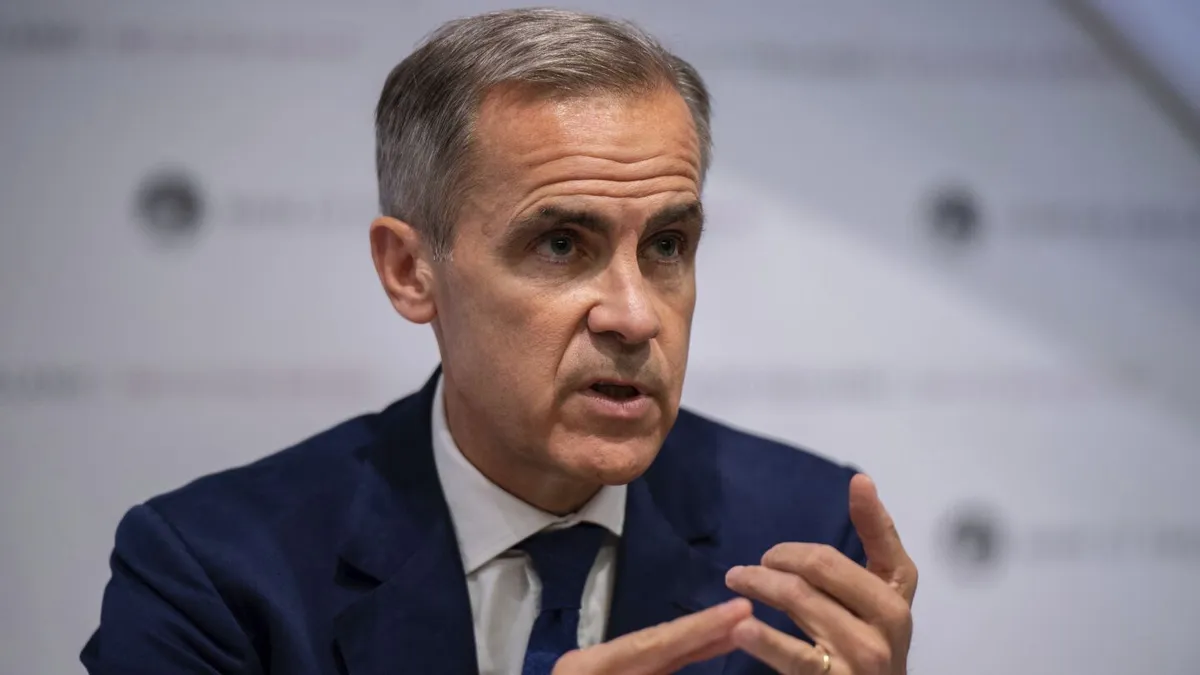
In a significant political shift, Mark Carney, a former central banker, has been elected as Canada's next prime minister. The governing Liberal Party selected Carney as its leader during a vote on Sunday, as the nation grapples with ongoing challenges, including U.S. President Donald Trump's trade war and threats of annexation. Carney, who is 59 years old, will succeed Justin Trudeau, who announced his resignation in January but will remain in office until Carney is officially sworn in within the next few days.
Mark Carney's victory was decisive, as he secured an impressive 85.9% of the vote. In his acceptance speech, Carney addressed the economic challenges posed by the United States, stating, “There is someone who is trying to weaken our economy.” He criticized Trump for imposing “unjustified tariffs” on Canadian goods, emphasizing that these actions are detrimental to Canadian families, workers, and businesses. “We cannot let him succeed, and we won’t,” Carney asserted, vowing to maintain retaliatory tariffs until the U.S. shows “respect” for Canada.
Carney's strong rhetoric included a rallying cry for Canada, asserting, “We didn’t ask for this fight. But Canadians are always ready when someone else drops the gloves.” He drew parallels between trade and hockey, confidently declaring, “In trade, as in hockey, Canada will win.” His experience includes navigating economic crises as the head of the Bank of Canada and later as the first noncitizen governor of the Bank of England, where he received bipartisan acclaim following Canada’s recovery from the 2008 financial crisis.
The ongoing trade war initiated by Trump has sparked a surge of Canadian nationalism, which is anticipated to influence the upcoming parliamentary elections. As negative sentiments towards the U.S. escalate, many Canadians are expressing their discontent by booing the American national anthem at sports events and avoiding American products. Carney highlighted this growing nationalism, stating, “The Americans want our resources, our water, our land, our country. If they succeed, they would destroy our way of life.”
Carney contrasted Canada’s healthcare system, which he labeled as a right, with the U.S. system, which he described as a big business. He emphasized the differences between the two nations, stating, “America is a melting pot. Canada is a mosaic.” He firmly declared that Canada “will never, ever be a part of America in any way, shape, or form.” Carney's leadership is expected to focus heavily on navigating the complexities of U.S.-Canada relations during a time of heightened tension.
As Carney prepares to take charge, the Liberal Party is positioned to address the pressing political landscape influenced by ongoing trade disputes. The party's chances in the upcoming election appear to be improving, bolstered by the rise in Canadian nationalism. The opposition parties, particularly the Conservatives, are likely to frame the election as a referendum on Trudeau's leadership, especially in light of escalating food and housing prices.
With Carney at the helm, an election is expected to be called soon. He may either initiate the process himself or face a no-confidence vote from opposition parties in Parliament. Trudeau has encouraged Liberal supporters to engage actively, stating, “This is a nation-defining moment. Democracy is not a given. Freedom is not a given. Even Canada is not a given.”
As Canada stands on the brink of a new political era, the impact of Mark Carney's leadership on both domestic policies and international relations remains to be seen.